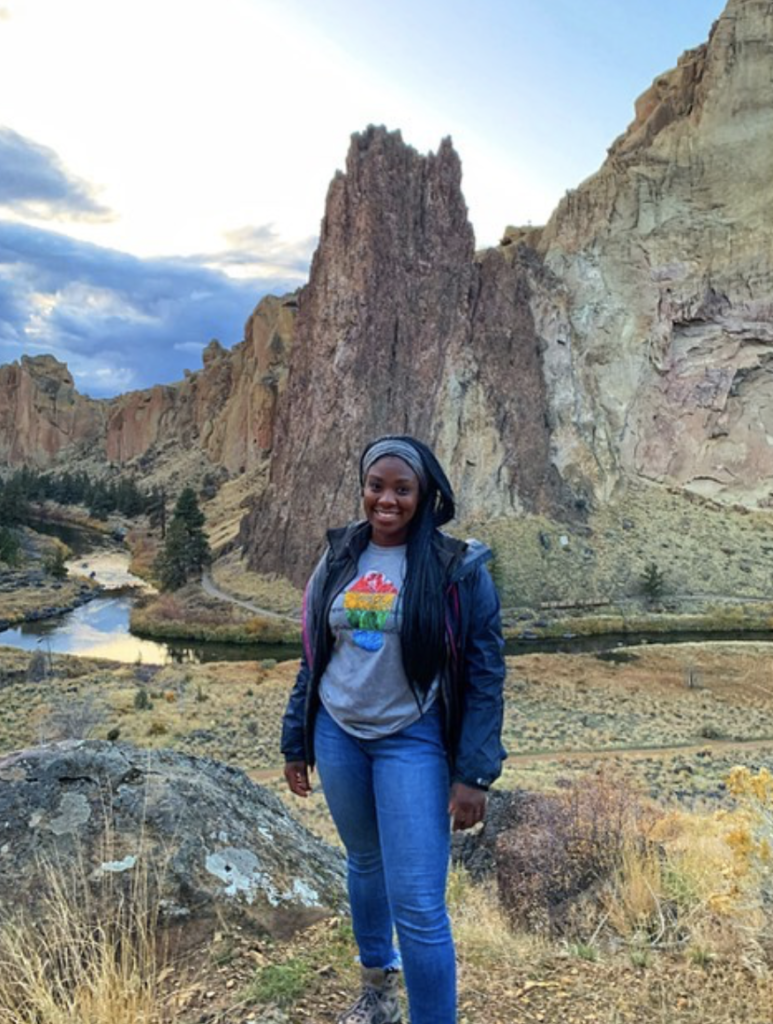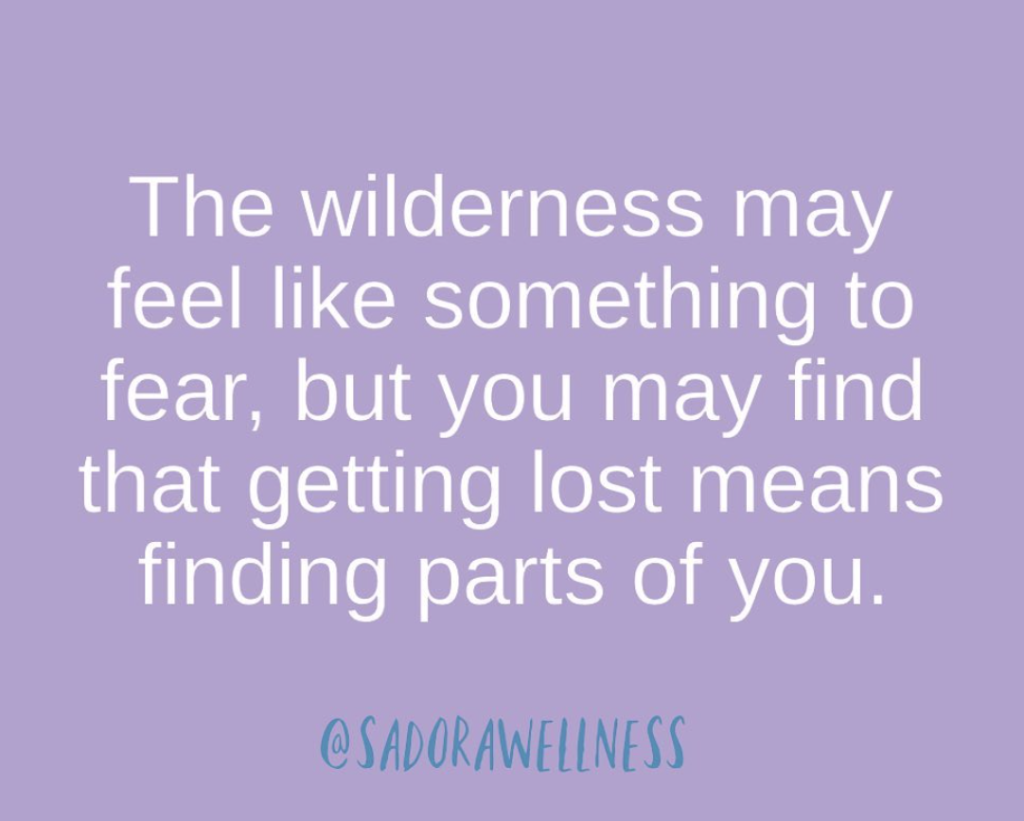We believe so strongly in the power of healing and moving in the outdoors for our bodies and our spirits. So when we started following Judith Sadora, a therapist that focuses on wilderness therapy, we wanted to know more about her story and her work. Meet Judith Sadora Therapist LMFT, WFR, Owner at Triune Health & Wellness, LLC, and Board Member @adventuremamas @thruartfoundation

SIB: Tell us a little bit about yourself in 3-4 sentences.
Judith: I am a Marriage and Family Therapist working in Wilderness Therapy in Central Oregon. I work with adolescent boys in the outdoors, but in that I specialize with working with adolescent boys of color and transracial adoptees.
SIB: We love the recent piece you wrote “Prepped in the Woods for Everyday Life” . Have you always been a nature lover or was there a particular moment or experience you had in nature that has inspired your work?
Judith: I did not grow up loving the outdoors because I had limited experiences with outdoor recreation. In Las Vegas, I went hiking for the first time at Red Rock Canyon and fell in love with it. It was healing for me spiritually and emotionally. Every experience I had in the outdoors, connected me to a greater sense of God and allowed me to process some of my own trauma and experiences in life. I have always wanted to be a therapist, but never knew in what context, until I came across Wilderness Therapy. As I researched the field, I knew it was where I was supposed to be. Something I noticed in the field of Wilderness therapy and on the trails in my personal time, is the lack of diversity in both spaces. That has fueled my passion in doing this work with clients of color outside in nature.
SIB: Wilderness Therapy, can you tell us more about this? Do you do this in group settings or one-on-one?
Judith: Wilderness Therapy is an experiential approach to therapy, in that it utilizes real time experiences to work with clients who have mental health illness. Clients in Wilderness Therapy stay out in the backcountry for an average of 8-10 weeks where they have individual and group therapy sessions with me, learn primitive skills like busting fire, cooking, setting up shelters, and backpacking in a milieu. Family therapy and letter writing is an important essential at my program and clients engage in a number of therapeutic tools that help them process trauma and work on their attachment style.
SIB: During this time of the pandemic, it seems like there’s a balance of both being gentle with ourselves and also, pushing ourselves to move forward. Can you share something that has been hard and something that has been helpful for you during this time?
Judith: In this time of the pandemic and the protests regarding police brutality, it is so easy to get swallowed up by social media and the news. The thing that has helped me the most is getting outside, whether it’s working in my garden, building my chicken coop, going for a hike or working out. Feeling like I am connected to nature plays a big role in my self-care. My spirituality provides me a sense of connection to God, which helps in grounding me during this time.
SIB: After moving through this pandemic, is there something you want to add more of to your life or less of to your life once things go back to “normal?”
Judith: It’s interesting, because it’s hard to see what normal will look like after this. If anything, I sense more of an urgency after this time. An urgency to be present for my clients at work and the community, but balancing that with self-care. The need to rest and give my body time to reset is very important for me in the work I do.
SIB: Finish these sentences:
Judith: I feel strong when: I am able to make space for my inner child
I feel most beautiful when: I am with my husband because of the way he always looks at me
Courage to me means: always seeking to learn
Thank you for your time! If people want to follow your journey where can they learn more about you?
